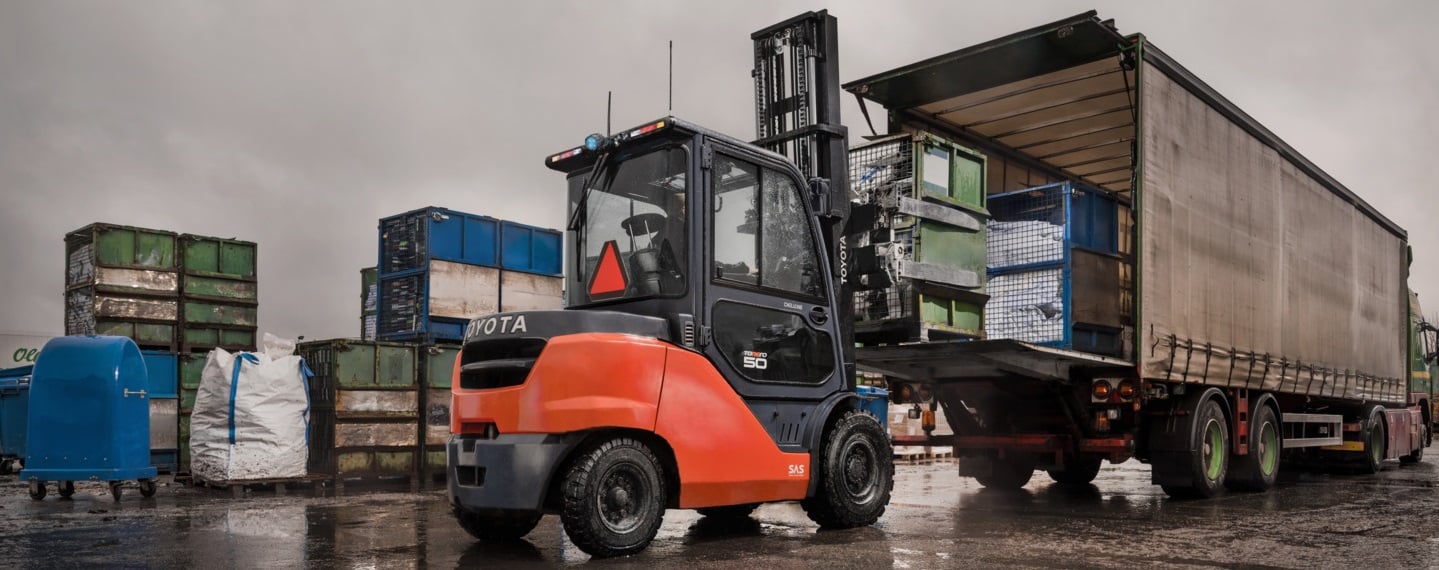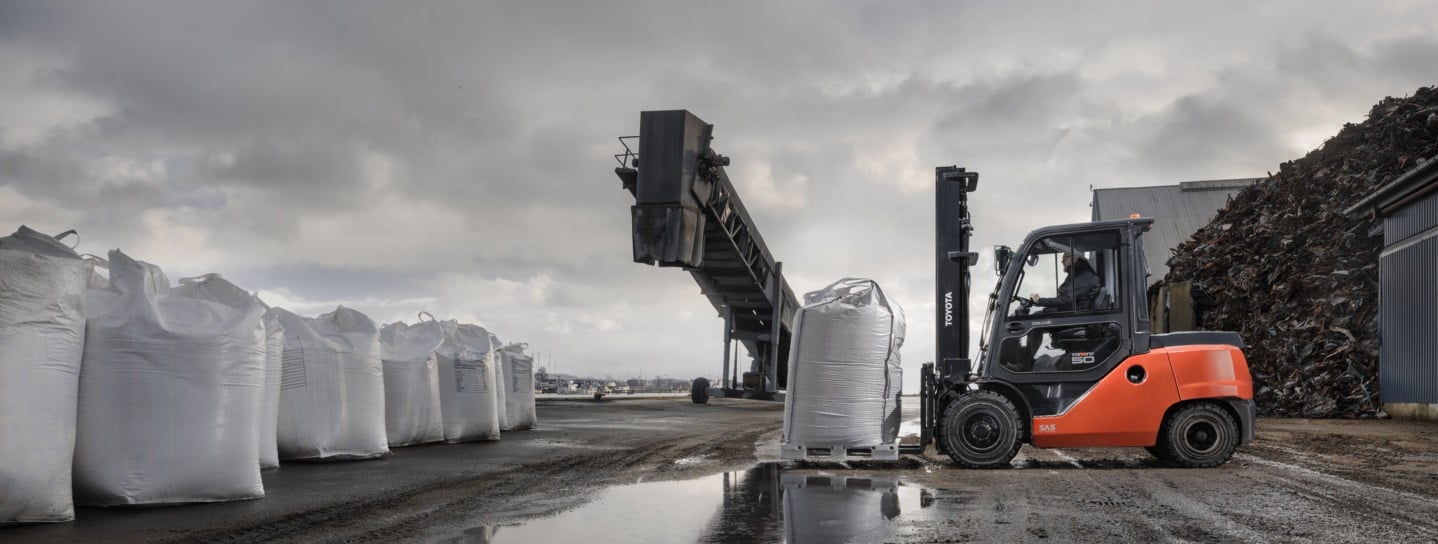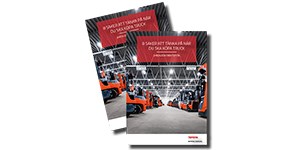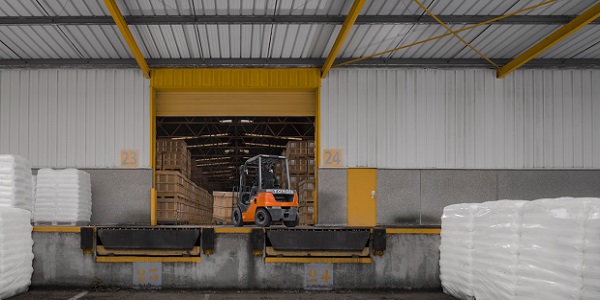With the growing drive to tackle the root causes of climate change, Toyota Material Handling UK’s Sales Training and Product Development Manager, Sam Gray, answers some of the most frequently asked about HVO Fuel. HVO is a new alternative to fossil diesel. It's said to allow IC engine-powered forklift truck users to cut their net CO2 emissions by as much as 90%.
So, what is HVO fuel?
Hydrotreated vegetable oil (HVO) is a low carbon, low emission, fossil-free, environmentally-friendly and sustainable alternative to conventional fossil diesel.
It is part of the paraffinic family of fuels, it is clean and safe. It also meets fuel standards and EN 15940:2016 specifications and is endorsed by a wide range of original engine manufacturers.
Unsurprisingly, many experts consider that HVO has a vital role to play in helping the UK achieve its 2050 net zero target for greenhouse gas emissions.

How is HVO produced?
HVO is synthetically produced using a complex refinery process that removes oxygen from vegetable oil and waste animal fat molecules and creates hydrocarbons very similar to regular diesel.
Impurities are removed from the fuel during the production cycle leaving a consistent, quality product that significantly reduces harmful emissions when used in diesel vehicles.
Only completely renewable materials are used to produce HVO. Plus, the crops that HVO is made from are grown and harvested without damaging the environment or the natural ecosystem.
Why is HVO better than diesel?
HVO fuel not only reduces emissions and burns more cleanly, but it is also safer to handle than mineral diesel. It eliminates up to 90% of net CO2 and significantly reduces nitrogen oxide (NOx), particulate matter (PM) and carbon monoxide (CO) emissions.
It is 100% biodegradable, sustainable and renewable. While reduced particulate production during the combustion process reduces the ageing of engine oils and improves local air quality.
Switching to HVO means fewer pollutants instantly which not only protects the planet but also delivers a safer and healthier working environment. This as well contributes to enhanced equipment performance and reliability.

Do I need to modify my diesel-powered forklift fleet to use HVO?
No, nearly all Toyota industrial IC engines will run perfectly with HVO fuel with no change required to daily running or servicing regimes of your diesel engine.
Because HVO is 100% interchangeable with conventional fossil diesel it can be blended at any ratio. So you can simply top-up and go without draining and cleaning fuel tanks.
HVO's seamless interchangeability has been recognised and approved by most major engine manufacturers, whose warranties will support an instant switch from diesel to HVO.
How does HVO fuel compare in price with traditional diesel fuel?
Making the best decision for the planet and your staff will often come at a financial cost. However, with the increasing focus on the climate and the impact we have on the environment, many businesses are happy that the benefits of choosing “greener” fuel alternatives outweigh the costs.
So, although HVO fuel is slightly more expensive than diesel, many customers are comfortable with this when making the decision to switch.
What industry sectors are using HVO fuel?
HVO is being used increasingly to power a wide range of modern vehicles as well as construction machinery and industrial power systems.

Is HVO safe to use?
HVO is extremely safe. It is virtually insoluble in water and it is biodegradable. It complies with EU REACH regulations and is confirmed as biodegradable according to OECD test guideline 301 B.
How is HVO different to existing biodiesel, such as FAME?
HVO is not biodiesel. It's fundamentally different to biodiesel and as such, doesn’t suffer from any of the negative issues often associated with biodiesel.
For example, FAME (fatty acid methyl ester) is produced from vegetable oils and animal fats that have undergone esterification. This is the process of changing a vegetable or other cooking oil into an ester, using methanol as the catalyst.
FAME is highly prone to oxidation, absorbing atmospheric moisture and microbial attack, which can make the fuel unstable and often shortens its ‘shelf life.’


















